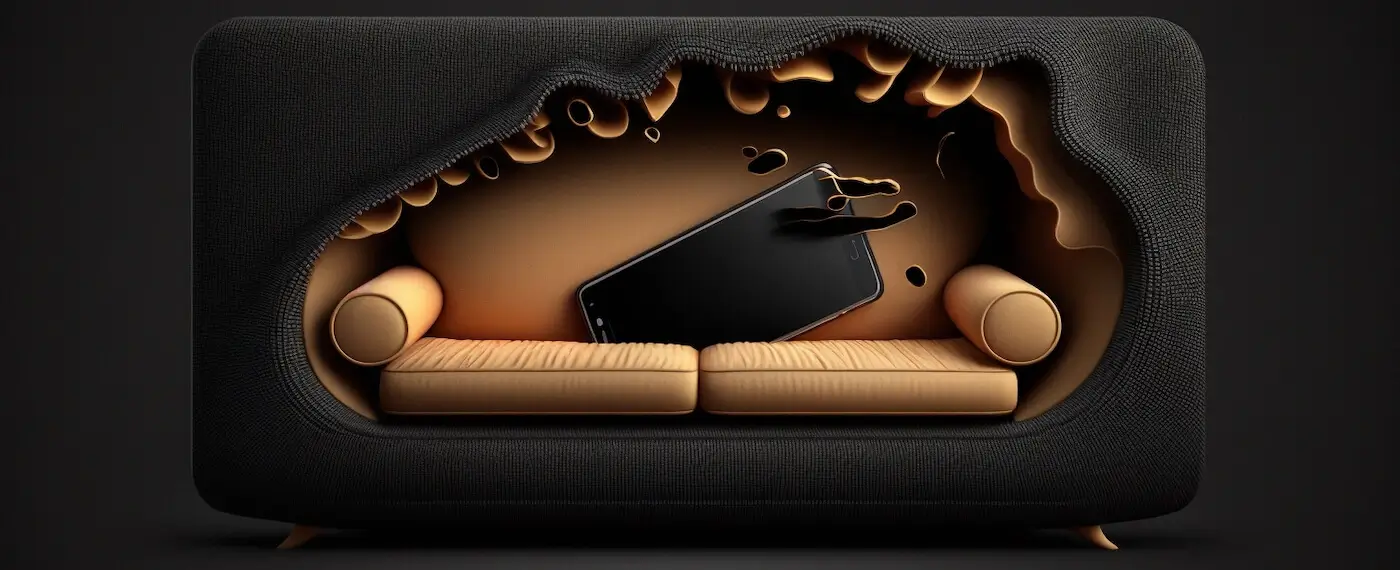
How to Remember Where You Lost Something
Table of Contents
Remember where you lost something to find misplaced items by staying focused and stress-free. Applying a possible mnemonic device betters the efforts of uncovering lost objects by remembering where you put them in the first place. The memory is still there, and commitment to come upon it is crucial, and increased focused awareness makes recall an easy task.
Learn from your mistakes and begin to dive into the reasoning of forgetfulness. Once this process has started, like sound health, if taken care of daily, the cure is available before ill health sets in.
Mostly all human beings (try to) have several processes of thought which intertwine throughout one’s day. In the midst of information overload, a mix-up is bound to happen. There are several ways a person can prepare themselves for a more stable and promising information recall process in a case where something is lost.
Lunging into lost memories, trying to find things, and remembering where you put something is what many experiences around the globe daily. You are not alone. Searching for simple things like phone chargers and important ones, like a passport, the day before international travel – we have seen it all. Veterans of lost and found, tracing back our steps to dead ends and coming to terms with lost items. Setting ourselves up for promises to stay focused the next time we leave our car keys at a family gathering. Instead, we often get excited, and our emotions while seeing loved ones fill the air so quickly that it becomes the most crucial thing in the view of our mind. The keys are already somewhere in the background of all those webbed memories and where we dropped them.
Practice Focus & Concentration
The great thing about losing something is realizing the importance or unimportance of an item. It can be easily let go of, or in another case, the search party begins. From children in the playground to top CEOs – sometimes we misplace items and cannot recall their hiding spots. When in conscious awareness, mnemonic devices can aid in the practice of daily focus on objects we come in contact with. With the use of a mind palace mnemonic device, for example, encoding memories to known objects can make the recall of information much more manageable. A mind or memory palace is a memorization technique used by World Memory Champions to store large amounts of data in their long-term memory. Out of well-known environments, our brain can establish a link between memory and object, setting us up for better future navigation within our mind. Remembering something such as car keys being put on the glass table next to the TV set is not a hard thing to do. Although, making this memory efficiently encoded, stored, and available for future recall is the strenuous task at hand.

Practice Focus & Concentration
One of the processes getting into the way of proper focus while encoding memories is our brain and it’s thousands of processes happening at once. We put our keys next to the TV and are talking to one of our best friends we haven’t heard from in a while on the phone. Instead of using visual cues of our passage through the house and placement of the keys, our brain is occupied with many untold stories we want to share with this particular friend. Tracing back our steps will be much harder because, from the time we entered the house, we were distracted by the phone conversation – it is the number one priority in our brain due to the great and kind emotions we experience when hearing from somebody special. Instead, try to keep concentration, mapping out the environment before you and what you think of when an object is placed. A simple pause and a still thought of the moment will be much more easily encoded than a flustered mind. Practice does not mean perfect, so leaving space for error and learning from our misplacements is a solid start.
Practicing focus and concentration is crucial to improving your memory and reducing the likelihood of losing items. One effective way to find keys, for example, is through prior mindfulness meditation. This practice involves sitting quietly and focusing on the present moment without any distractions. Regularly engaging in mindfulness meditation can improve your ability to concentrate and focus on the task at hand, which can help you better remember where you put your car keys or any other item you may have misplaced.
Additionally, taking breaks throughout the day to practice mindfulness and clear your mind can help reduce stress and increase your overall ability to recall information. By making mindfulness and focus a regular part of your routine, you can train your memory to remember better where you lost something and reduce the stress and frustration associated with misplacing items.
Stressless Freeway
An inner stress-free environment will produce a simpler, transparent world. Our brains alone see thousands of images per day. Take on the things you can control by having organized action. Dedicate unique spots for particular objects grouped by personal reason of correlation. Calmly knowing you put something in a proper place will avoid future meltdowns when you dearly need that passport in order to travel abroad tomorrow. When stress arises, it is like driving through fog. We can hardly see the signs on the road and might need to go the right way. Once the fog settles, though, and our thoughts are more centered, the stressless freeway appears. This is the road to find something you lost. Often, when stressed, the process of encoding becomes hindered; therefore, storage is also blocked, leading to the partial recall.

Trust The Process to Remember Where You Lost Something and See Silver Linings
“Keep calm and carry on,” as we all have heard. Humans can surely remember where they put something they lost if they can recall what they recently just read. A great practice to keep the mind engaged in these tiny ‘mind workouts.’ Gaining confidence will train the thought that every moment is as critical as the previous one and future ones, resulting in a grounded now. “A-ha!” moments come, but the need for the action is already long behind. Those mind-blowing recalls will happen more frequently after we learn to trust the process of how our brain works. Just work with it.
By testing yourself and seeing how long it takes to find a missing item, you can gauge your current memory retention and identify areas for improvement. For example, if it takes you several hours to find your keys, you may need to implement a system for organizing your belongings and establishing routines for putting things away. On the other hand, if you can find the item within a few minutes, you may need to practice focusing and concentrating more to reinforce your memory in more frequent moments. Additionally, accepting that you may have lost something permanently and letting go can be an essential step in the process. By acknowledging that the item is gone and not allowing yourself to become overly attached to it, you can reduce stress and increase your ability to focus on other tasks.
Conclusion
The world wants our attention every second. It is our job as humans to learn how to filter out the fog that arises and hinders our ability to recall where you lost something. This might not shift in a day, but keeping a clean and organized focus is a setup for a stress-free future. It does not mean we have to turn life upside down to see where our keys fall out, but taking care of the moment by being present and having an organized life will erase the issue of remembering where you put something. Soon you will know your patterns so well that recall will be a task of scheduled programming. This way, pre-established arrangements in placing objects serve as the foundation for a clutterless life. No ill health because the morning starts with daily focus cure procedures. No shortcuts.
The key to finding misplaced items is to stay focused, reduce stress, and use techniques like mnemonic devices and mindfulness to enhance your memory. By acknowledging the reasons for forgetfulness and committing to improving your recall processes, you can successfully locate lost items and reduce the likelihood of losing them in the future. Essentially, if we train our memory today, tomorrow, we will remember better!
FAQ
What are some common strategies for remembering where you lost something?
Some common strategies include retracing your steps, making a mental map of the area where you last had the item, and tagging your belongings so that you can quickly remember them if they are lost.
Can you train your memory to remember better where you lost something?
You can train your memory to remember better where you lost something by practicing visualization techniques and memory exercises, staying organized, and reducing stress. Most importantly, plan and begin by practicing mindfulness; pay attention to your surroundings and focus on the task at hand when you’re putting away an item. This can help you form a stronger memory of where you placed it and the surrounding.
Does technology help with remembering where you lost something?
In short, the answer is that technology can help with remembering where you lost something. We have everything from Apple AirTags to costly tracking systems. For example, you can use a GPS tracking device to keep track of your belongings or a digital assistant to remind you where you put your things. Additionally, some apps allow you to keep track of your belongings by scanning the barcode or QR code on the item and storing its location in the app. However, the best thing is to have a reliable pre-made Mind Palace from apps like memoryOS.